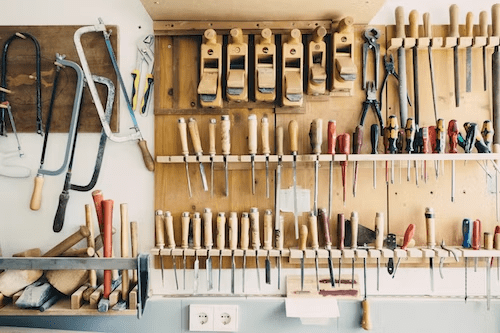A garage can represent multiple things – it can be a parking space, a workshop, a storage room, or even a living room. Listed below are ways you can practice Garage Safety and be careful with your loved ones.
Although garages make up a big portion of the house’s square footage, they often end up overlooked and ignored – making it a potentially hazardous area. They are considered to be separate from the living space therefore their upkeep and care take a backseat.
Remain Up To Date With Your Garage Safety
Listed below are some ways you can remain up-to-date with your garage safety.
Safety Education For The Family
First and foremost, if you have a garage, you need to imbue your family with safety tips.
Always supervise young children in the garage. Teach your children about the dangers of the garage and the importance of not playing with tools or equipment.
Faulty Wiring
The most common garage-based safety hazard is faulty or damaged wiring. American Authorities report that faulty wiring is the leading cause of garage fires in the US. This is especially a prominent problem in older properties.
Wherever you use an extension cord, make sure it is recommended for outdoor use as it will be able to bear a higher wattage.
Cluttered Workspace
A cluttered workspace is dangerous because the human mind can only keep track of a number of things at a time. When you have a cluttered workspace, not only does your productivity take a nosedive, but your area also becomes a safety hazard. When junk starts to pile up in the corners of your garage, it becomes a potential fuel for garage fires.
Do not lean your ladders, shovels, or rakes onto the wall or counters because they can fall and either break themselves or cause other irreparable damage.
Look into installing shelves, hooks, and cabinets so you can keep everything organized and clean.
Chemical Storage
There are a variety of dangerous chemicals that can be commonly found in almost everyone’s garage:
- Gas
- Oil
- Paint
- Lighter Fluid
- Pesticide
- Anti-Freeze
These liquids pose a tremendous fire risk and should be stored with care and concern. Store them in proper leakproof and airtight containers that are labeled and marked, making them easy to spot. Place them out of direct sunlight, in the shade. Keep them out of reach of children or curious pets. Any spillage could lead to a potential fire or slippage hazard.
A special reminder for people who love to partake in home barbeques – Do not keep the propane tanks inside your garage.
Tools and Equipment
Keeping up with the maintenance of your tools and equipment works for their longevity and your safety. Always check for any wear and tear on your tools, such as damaged or exposed wires and loose parts. Make sure the safety features on all your tools are in working condition. Do not leave them lying around as even unwound wires pose a tripping hazard.
Garage Door Safety
Garage Doors are bulky objects that can become dangerous if not properly maintained. You should schedule regular professional inspections for your garage doors and their components. Pay close attention to any troublesome noises when the doors open or close such as screeching, grating, or knocking. Make sure to clean your door tracks as they can become clogged with dust and debris. If you want to go the extra mile for your family’s security; invest in motion detectors, light sensors, and battery backup units in case of power shortages.
Make sure that your emergency release and auto-reverse mechanisms are working. These ensure the safety of any elders or children in your home.
Your garage may be a hub of activity, but safety should always be a top priority. By following these garage safety tips, you can create a secure and organized space that protects you, your loved ones, and your belongings from accidents and injuries. Remember that safety is an ongoing process, so periodically review and update your safety measures to ensure your garage remains a safe haven for your family
